Teachers' salaries are ranked lower than those of civil servants in other sectors.
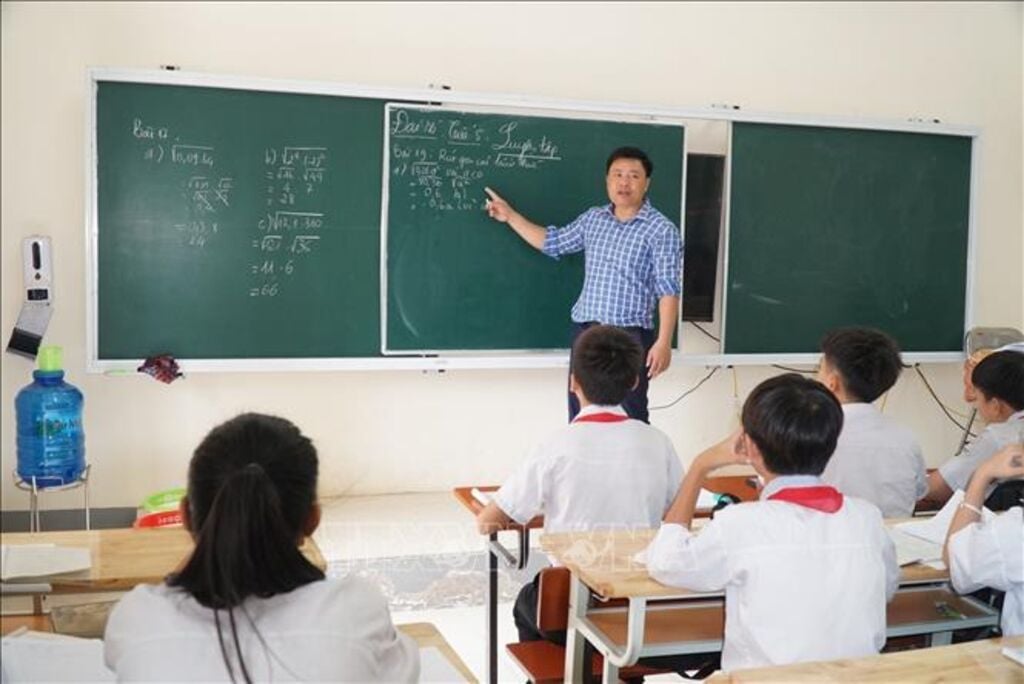
The Ministry of Education and Training said: Like civil servants in other sectors, teachers' salaries are being implemented according to the Government's regulations in Decree No. 204/2004/ND-CP dated December 14, 2004 on salary regime for cadres, civil servants, public employees and armed forces. Teachers and public employees in general are subject to the Professional and Technical Salary Table for cadres and public employees in State-owned enterprises, receiving starting salaries corresponding to training level requirements (type B for intermediate level, type A0 for college level, types A1, A2, A3 for university level and above).
Currently, only 3 teaching positions are subject to the salary of A3 civil servants: senior university lecturers, senior vocational education lecturers and senior vocational education teachers, accounting for about 1.17% of the total number of teachers. Meanwhile, this rate in other sectors and fields is about 10% of the total number of civil servants in the sector and field (senior positions).
The remaining senior teacher positions (grade I at preschool, general education, continuing education, and university preparatory levels) account for about 8.83% of the total number of teachers, and are only ranked at the salary of type A2 civil servants (equivalent to the title of senior civil servants in other sectors and fields).
When reviewing and comparing the applied salary scales, it can be seen that the salaries of most teachers (except college and university lecturers, vocational education teachers) are ranked lower than those of civil servants in other sectors such as healthcare (doctors, pharmacists), construction (architects, accountants), transportation (road technicians, managers, construction maintenance), justice (resume staff), culture - sports (directors, actors, artists, coaches), science and technology (researchers, engineers), information and communication (reporters, translators, television directors)...
Officials in other sectors are classified into 3-4 ranks (from rank IV to rank I), receiving salaries from A1 - A2.1 - A3.1 (corresponding to salary scales 6 - 8 - 10). Except for medical officials and science and technology officials who require a doctorate or master's degree with rank I, other sectors only require the general education level of officials from rank III to rank I to be university.
Except for university and college lecturers and vocational education teachers, teachers are also classified into 3-4 ranks (from rank IV to rank I), most of whom are receiving salaries from A0 - A1 - A2.2 - A2.1 (corresponding to salary scales 5 - 6 - 7 - 8) and are preschool, general education, university preparatory, and continuing education teachers (accounting for about 88% of the total number of teachers).
In addition, the salary scale applied to preschool teachers is currently A0 (2.10) - A1 (2.34) - A2.2 (4.00). According to the 10 salary scales of civil servants, the salary of preschool teachers is at scale 5 - 6 - 7 (other civil servants mainly enjoy salary scale 6 - 8 - 10). From that, it can be seen that the salary scale applied to preschool teachers is currently the lowest among the teacher titles and lower than all civil servants in other sectors and fields. While the working environment and the nature of the professional activities of preschool teachers have been proven to be difficult in practice.
“Special salary coefficient” is necessary when new salary policy has not been issued
According to the Ministry of Education and Training, salary policy is a key solution to help attract talented people to become teachers, thereby improving the quality of education and training. This is also a solution to help teachers feel secure in their work and dedication.
At point b, clause 1, Article 23 of the Law on Teachers, the National Assembly stipulated: "Teachers' salaries are ranked highest in the administrative career salary scale system". This is the first policy to specify the Party's policy on teachers' salaries, demonstrating the attention of the Party, State, National Assembly and the whole society to the position, role and specificity of teachers' professional activities. However, for this policy to become a reality, the Government needs to have specific solutions to influence and adjust the salary coefficient that teachers currently hold.
To implement the Law on Teachers, which will take effect from January 1, 2026, the Ministry of Education and Training is currently advising the Government to issue a Decree regulating salary policies and allowances for teachers. One of the prominent policies expected to be stipulated in this Decree is that all teachers will enjoy a "special salary coefficient".
In particular, preschool teachers are entitled to a special salary coefficient of 1.25 compared to the current salary coefficient; other teaching positions are entitled to a special salary coefficient of 1.15 compared to the current salary coefficient. For teachers teaching at schools, classes for people with disabilities, centers to support the development of inclusive education, and boarding schools in border areas, an additional 0.05 is added to the prescribed level.
The special salary coefficient is calculated with the salary level and is not used to calculate the allowance level, with the salary calculation formula as follows: Salary level implemented from January 1, 2026 = Basic salary level x Current salary coefficient x Special salary coefficient.
The Ministry of Education and Training believes that the salary arrangement of teachers can only be fundamentally resolved when the Government issues a new salary policy and rearranges the salary scale of teachers and other civil servants. However, in the context that the Government has not yet issued a new salary policy, it is necessary to issue regulations on specific salary coefficients (as the draft Decree regulating salary policy and allowance regime for teachers is expected). Although the specific salary coefficient does not help teachers' salaries to be ranked "highest", it will help teachers' salaries to be ranked "higher" than civil servants with the same applicable salary scale, gradually solving the shortcomings of the current salary scale system.
Source: https://baotintuc.vn/giao-duc/can-co-quy-dinh-ve-he-so-luong-dac-thu-doi-voi-nha-giao-20251105221448969.htm


![[Photo] Opening of the 14th Conference of the 13th Party Central Committee](https://vphoto.vietnam.vn/thumb/1200x675/vietnam/resource/IMAGE/2025/11/05/1762310995216_a5-bnd-5742-5255-jpg.webp)









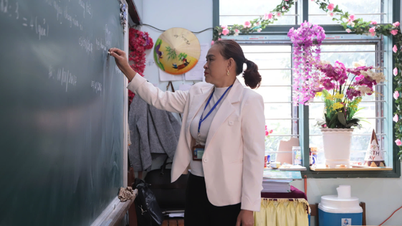



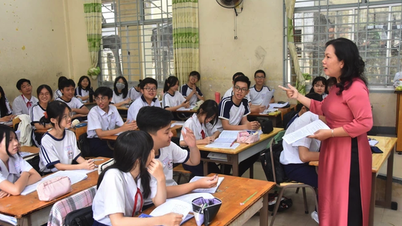














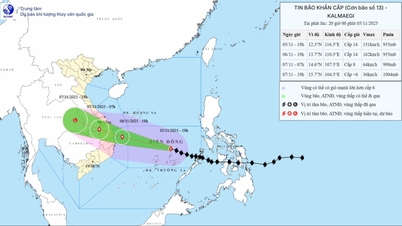
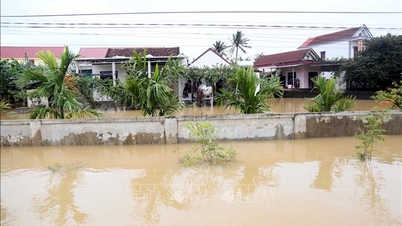




![[Photo] Panorama of the Patriotic Emulation Congress of Nhan Dan Newspaper for the period 2025-2030](https://vphoto.vietnam.vn/thumb/1200x675/vietnam/resource/IMAGE/2025/11/04/1762252775462_ndo_br_dhthiduayeuncbaond-6125-jpg.webp)

















































![[Motion Graphics] 5 notes when converting from lump-sum tax to declaration](https://vphoto.vietnam.vn/thumb/402x226/vietnam/resource/IMAGE/2025/11/06/1762381214740_fb_thoi-tiet-cms-1200x800-3.jpeg)


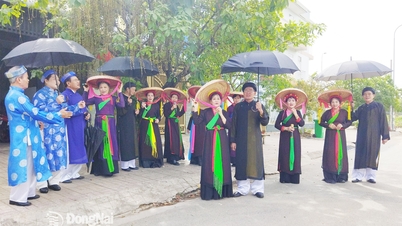















Comment (0)